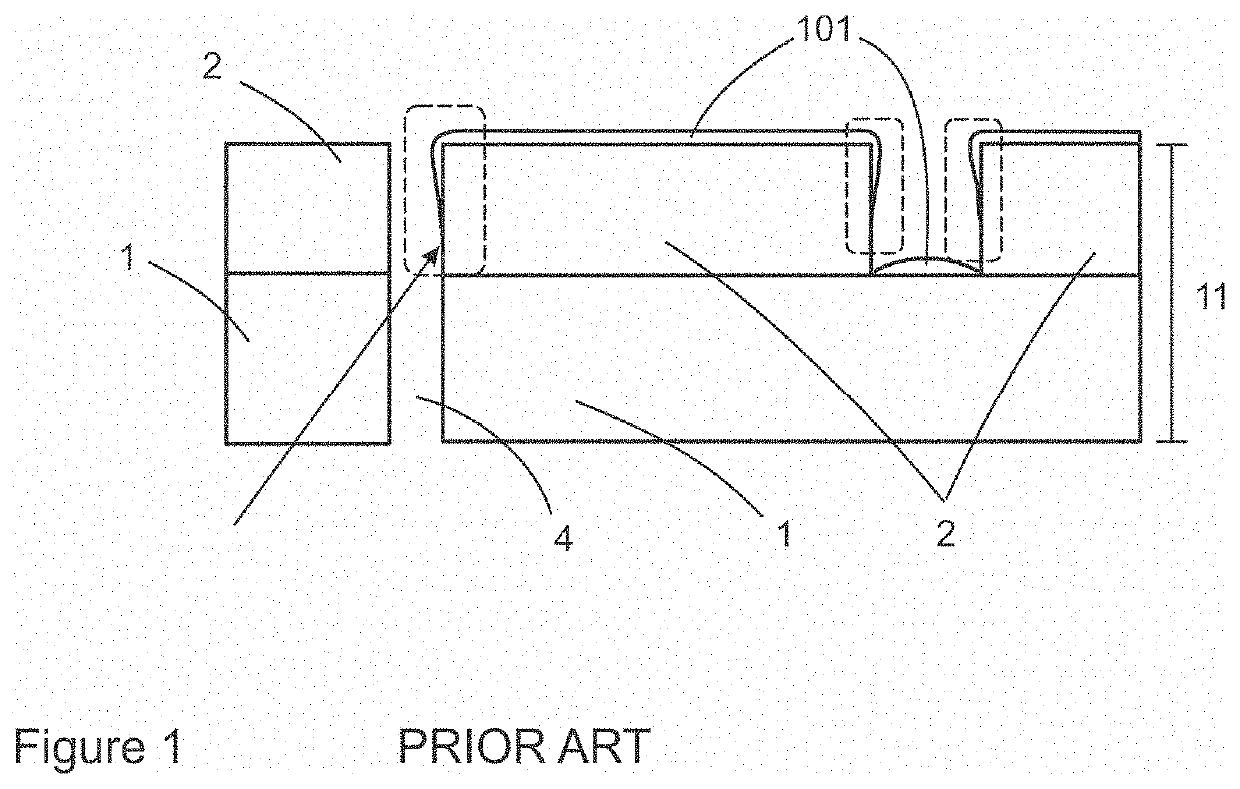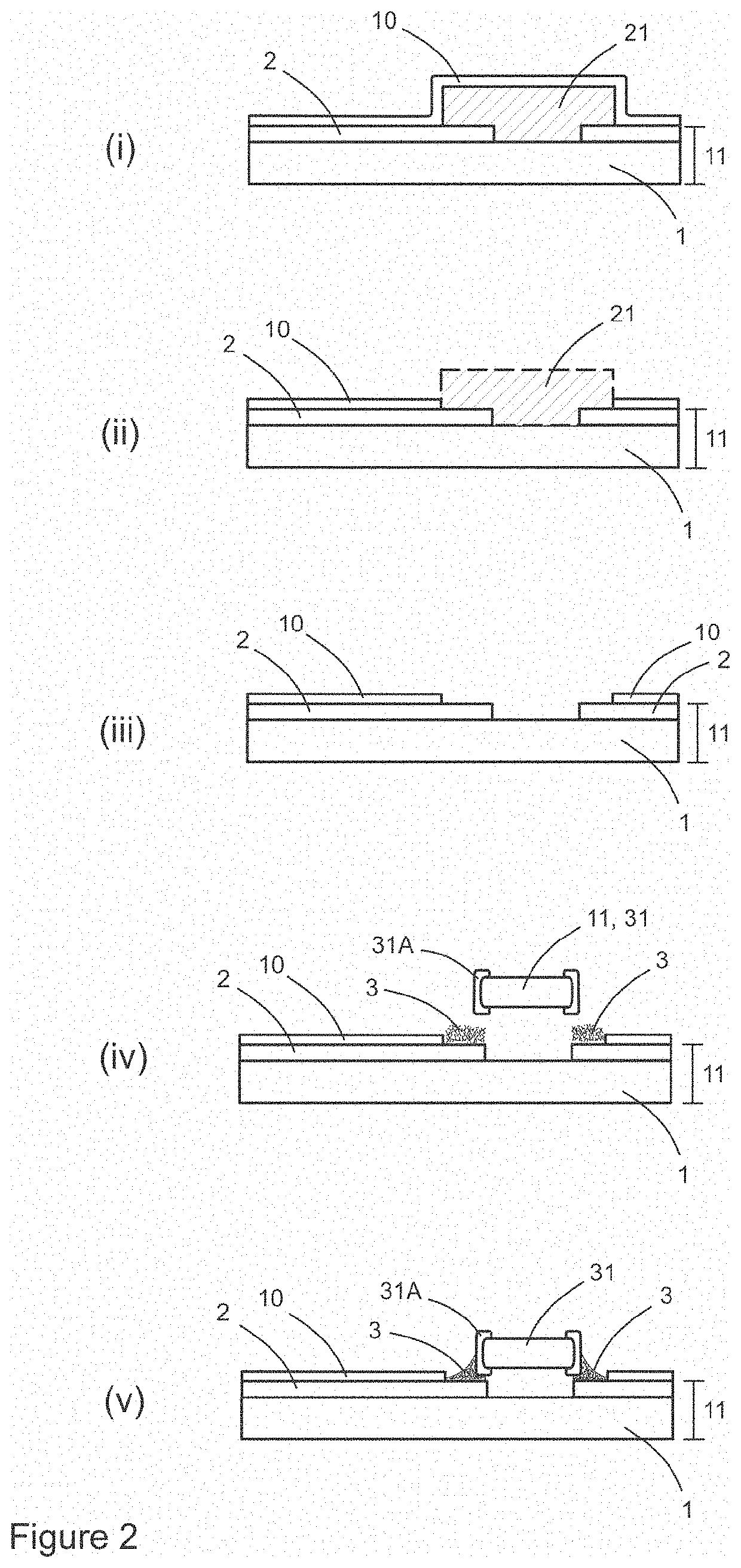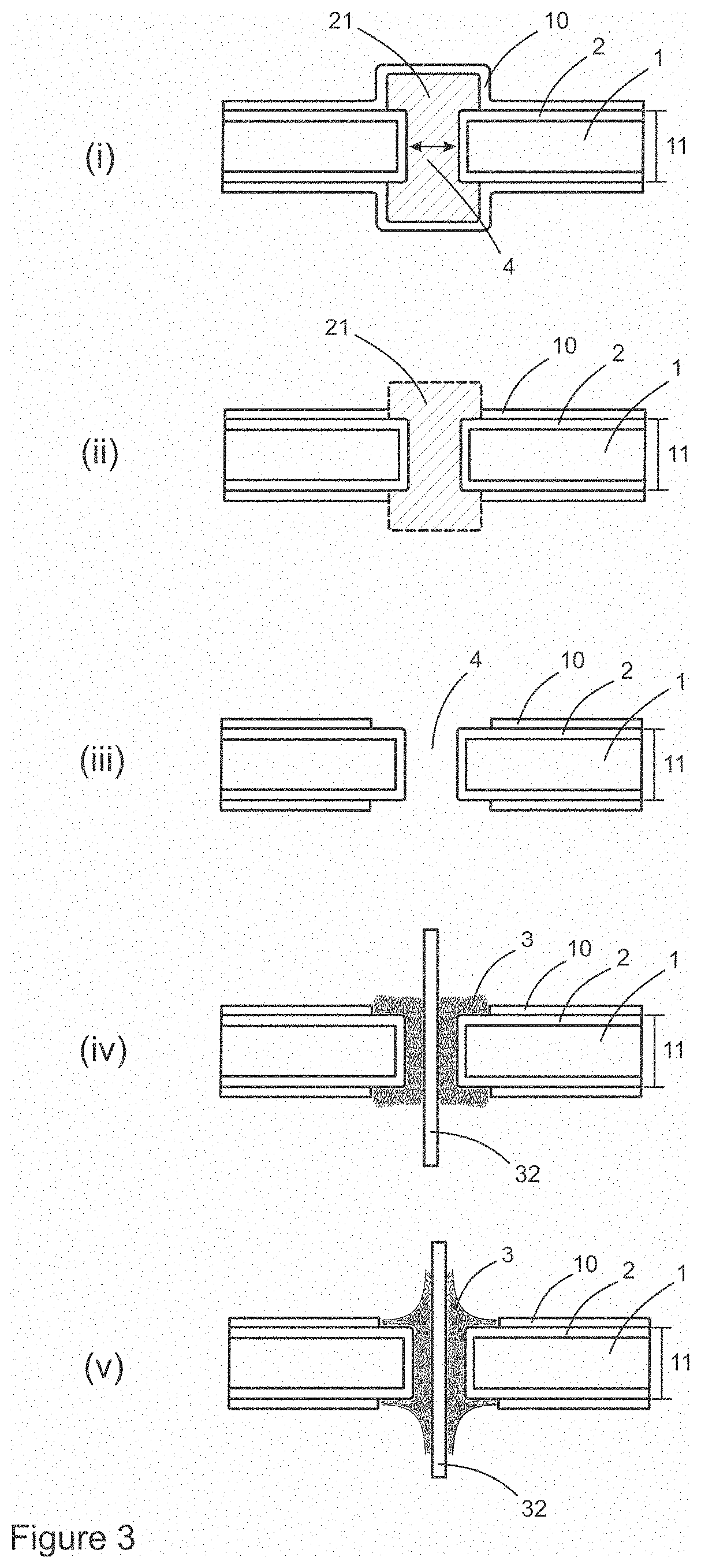Solder mask
a technology of soldering mask and soldering cylinder, which is applied in the direction of soldering apparatus, circuit mask, manufacturing tools, etc., can solve the problems of affecting affecting the quality of soldering, so as to improve the reliability of electronic devices, reduce the risk of cracking, and improve the effect of pattern resolution
- Summary
- Abstract
- Description
- Claims
- Application Information
AI Technical Summary
Benefits of technology
Problems solved by technology
Method used
Image
Examples
example 2
[0059] The mask 10 provided as a layer of titanium dioxide (TiO2) has been deposited on the substrate 11 from titanium tetrachloride (TiCl4) and water. Deposition temperature varies within a range of about 20° C. (room temperature) to about 300° C.
example 3
[0060] The mask 10 provided as a layer of niobium dioxide (Ni2O5) has been deposited on the substrate 11 from niobium ethoxide (Nb2(OC2H5)10) and water. Deposition is possible at least within a range of 90° C. to 150° C.
[0061]In all examples, a layer produced in a single ALD cycle (pulse first precursor—purge; pulse second precursor—purge) has been approximately 0,1 nm. In order to deposit a layer with thickness 10-100 nm, mentioned reactions (cycles) are repeated a predetermined number of times. The deposition procedure may be thus completed within a time range of about 10 minutes to about 20 hours depending on a number of cycles required and duration of each cycle.
[0062]For the purposes of the invention it is preferred that the mask 10 is deposited as a layer having thickness within a range of 10-500 nm, preferably, within a range of 20-200 nm, more preferably, within the range of 50-200 nm, such as 100 nm.
[0063]In similar manner, the mask 10 can be established from three or more ...
PUM
| Property | Measurement | Unit |
|---|---|---|
| temperature | aaaaa | aaaaa |
| thickness | aaaaa | aaaaa |
| thick | aaaaa | aaaaa |
Abstract
Description
Claims
Application Information
 Login to View More
Login to View More - R&D
- Intellectual Property
- Life Sciences
- Materials
- Tech Scout
- Unparalleled Data Quality
- Higher Quality Content
- 60% Fewer Hallucinations
Browse by: Latest US Patents, China's latest patents, Technical Efficacy Thesaurus, Application Domain, Technology Topic, Popular Technical Reports.
© 2025 PatSnap. All rights reserved.Legal|Privacy policy|Modern Slavery Act Transparency Statement|Sitemap|About US| Contact US: help@patsnap.com



